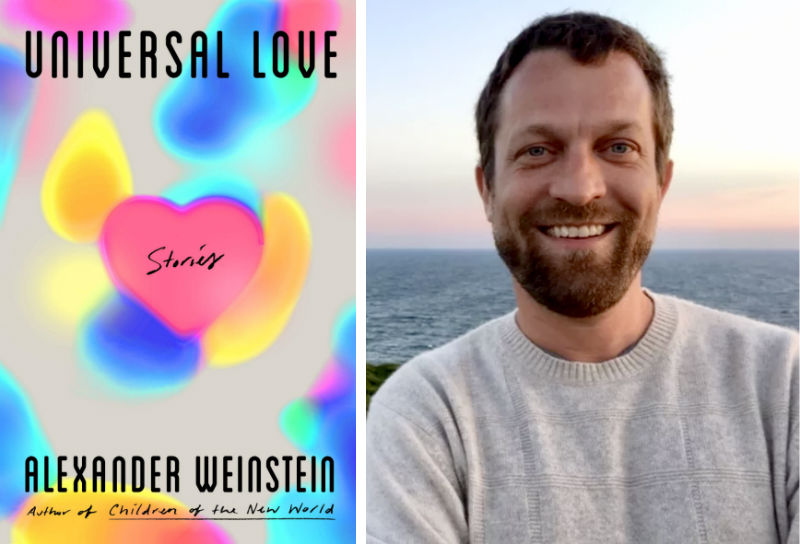Late-Night Journals: Former Ann Arbor police officer Peter Stipe recalls 18 years on the force in his memoir "Badge 112"

For almost 20 years, Peter Stipe served as a police officer in Ann Arbor. After getting off work late at night, “I would be amped up, go home, and write it all down,” he says. “I wrote a lot of profiles of people at work and their personality quirks.”
The result of all that late-night journaling is now Stipe's memoir, Badge 112.
The idea for putting this writing into a book came from a police inspector Stipe met while visiting his stepbrother: “After hearing me tell stories about my days on the job, he said that I should write a book.”
Stipe began by posting his stories on Facebook.
“I did my test drive there,” he says. “It helped me to figure out how long the stories should be, if I was grabbing people at the beginning, giving a satisfying payoff, and so on.”
He also had people from a variety of backgrounds proofread the material so as “not to err on any sensitive issues.”
Badge 112 is a series of vignettes that allows the reader to drop in and drop out of the book wherever they choose, and Stipe composed his prose in a way inspired by the memoirs of a famous actor.
“David Niven wrote some books about his Hollywood adventures … as a witness to what was going on around him, not as the main character," Stipe says. "I tried to model my writing on that to tell what happened as I witnessed it.”
On the Ball: The AFC Ann Arbor Soccer Club Thinks Globally, Acts Locally

On January 1, AFC Ann Arbor announced the first signing for its 2022 women's team: Emily Eitzman, a University of Michigan college student who made her debut in 2019 with the semi-pro soccer club as a 17-year-old student at Saline High School.
But Eitzman never stopped working with AFC Ann Arbor despite her two-year playing gap for the team.
And AFC never stopped working for Ann Arbor and the greater Washtenaw community.
On the Corner: A new book about Zingerman’s Deli details the Ann Arbor institution's satisfying history

If you live in Ann Arbor long enough, you will inevitably be asked about three things: University of Michigan football, the Art Fairs, and Zingerman’s Deli.
Since 1982, people have flocked to Zingerman’s for top-of-the-line sandwiches and outstanding customer service. The story of how the business grew from a 1978 idea hatched between restaurant colleagues Ari Weinzweig and Paul Saginaw into a nationally known business is covered in Micheline Maynard's new book, Satisfaction Guaranteed: How Zingerman’s Built a Corner Deli into a Global Food Community.
Maynard is a longtime journalist, educator, and frequent guest on both radio and TV. Her career includes writing as a columnist at The Washington Post, a contributor to The Takeout, Medium, and The Ann Arbor Observer, and as the author of The End of Detroit and The Selling of the American Economy: How Foreign Companies Are Remaking the American Dream.
The genesis for the book began before the COVID pandemic.
U-M prof Jeffrey Veidlinger on his book "In the Midst of Civilized Europe: The Pogroms of 1918-1921 and the Onset of the Holocaust"

Jeffrey Veidlinger, a celebrated historian and Joseph Brodsky Collegiate Professor of History and Judaic Studies at the University of Michigan, scoured trial records, official documents, and witness statements to assemble his new book, In the Midst of Civilized Europe: The Pogroms of 1918-1921 and the Onset of the Holocaust, which recounts organized violence against Jewish people in the Ukraine and Poland before World War II.
“For about 10 years, I was a co-director of The Archives of Historical and Ethnographic Yiddish Memories, which involved conducting Yiddish language oral history interviews with elderly folks in Ukraine," he said. "During those interviews, I was struck by people's experiences and memories of the pogroms of 1918-1921 and by the similarities in the ways in which they describe the pogroms and the Holocaust. The interviews impelled me to go back to the revolutionary period and to look more closely at exactly what happened.”
Veidlinger will appear via Zoom to discuss his work at the 34th annual Ann Arbor Jewish Book Festival on November 30 at 7 pm.
Burnout Society Film Club's 8 Ball Movie Night and Introvert Movie Night offer group viewings of cult flicks

One day in 2017, Samir Asfahani was surfing Facebook during his lunch break. The guitarist in Ann Arbor stoner-metal band Wizard Union, Asfahani belonged to a music enthusiasts’ group and a member started a thread about peoples’ favorite cult movies.
“I was immediately interested because I've always been fond of those types of films, so I started name dropping all of the movies I liked,” he said.
A fellow member of the Facebook group suggested they start another group for cult movies, from old psychotronic stuff to modern horror films.
“Right away, I said ‘I’m on that!’ and within 10 minutes I came up with the name," Asfahani said of the Burnout Society Film Club (BSFC). "The joke is that it would read as BS Film Club without actually calling ourselves the Bullshit Film Club.”
What began as a place for chatting about movies blossomed into a Facebook page in addition to the group, a blog with movie reviews, Instagram live chats and streaming, and shared movie experiences including 8 Ball Movie Night and the Introvert Movie Night.
Publisher Michelle Dotter details upcoming works from Ann Arbor's Dzanc Books

“If you had told me when I started in this business, that one day I would be working for a non-profit that published books based on their merit and not profit, I would not have believed it,” says Michelle Dotter, who serves as publisher and editor in chief of Dzanc Books (pronounced Duh-ZANK).
The nonprofit was co-founded in 2006 by Ann Arbor lawyer turned novelist and 826Michigan creator Steven Gillis and Emerging Writers Network creator Dan Wickett. They had an uncompromising vision for Dzanc.
“The biggest thing for Steve," Dotter says, "was that nothing be constrained by shareholder interest, so we would never sacrifice artistic quality or only support books that could make money … or end up like some presses, where commercial potential is such a factor they send book covers to retailers like Walmart or Costco, giving them the power to reject a cover if they think it won’t sell.”
Dotter took over as publisher and editor in chief of Dzanc in 2017 after working there since 2014.
“I loved what they were doing as far as experimental literature," she says, "taking chances on amazing authors and books that might have been rejected for commercial reasons at other publishers.”
One such book is In Our Midst by Nancy Jensen. Dotter will be in conversation with Jensen at a virtual event hosted by Literati on Monday, September 28 at 7 pm.
Not a Fake Ad: I Spy two new books from the Ann Arbor Observer highlighting its beloved monthly contests

If you live in the Ann Arbor school district, you are a recipient of the Ann Arbor Observer. The monthly magazine offers in-depth reporting on local issues and residents, a robust calendar of area events, and two long-running contests that are often the first things to which readers turn: "Fake Ad" and "I Spy."
If you're a superfan of these challenges, you won't have to wait until the next Observer arrives because the magazine is publishing two books of highlights from the contests: I Spy…Architecture: Photo Puzzles From the Ann Arbor Observer, Vol. 1 by Sally Bjork and The Fake Ad Book: 47 of the Best Fake Ads of All Time by Jay Forstner.
Forstner has worked on "Fake Ad" since the early 1990s when he had his “dream job” of being a staff writer for the Observer.
“I came up with the 'Fake Ad' as a way of trying to contribute more to the Observer because I loved the publication and the people I worked with," Forstner says. "The funny thing is that in the first years after I started writing the 'Fake Ad,' I also wrote some of my best articles for the magazine. I think the 'Fake Ad' was my way of connecting with my work.”
Bjork proposed the "I Spy" feature to editor John Hilton in late 1998.
“It originally focused on historic architecture and eventually expanded to include other things," Bjork says. "It began in February of 1999 and, thankfully, it has been going ever since."
Picking favorites from these beloved features proved difficult for both writers. Forstner recalls the fake ad for the Victorious Egret lingerie shop for ornithologists. “It combines three of my passions: wordplay, sexy lingerie, and bird watching," Forstner jokes, "which are very difficult to pursue all at the same time, sadly.”
Two lifelong friends challenge each other to write new songs on the No More Covers podcast

Michigan natives Chris Erickson and Hadley Robinson have been friends since birth.
“Before birth, actually," Erickson says. "Our dads grew up together, our grandmothers went to college together and they lived on the same street in Midland.”
The two stayed in touch through adulthood as each became artists in different ways.
Robinson is a video producer based in Brooklyn: “My background is in journalism, I used to be a newspaper writer. I’ve worked in video full time for the past five years while dabbling in audio, which has been helpful with this endeavor.”
Erickson teaches in the IB program at Huron High School where he also serves as the creative activity service coordinator, guiding students to find and pursue their creative interests.
High on Books: Shelly Smith's "Reads & Weeds" podcast cultivates the best sentences and strains

A love of the written word, cultivated cannabis, and the buzziest broadcast medium inspired Ypsilanti-based comedian Shelly Smith to start the podcast Reads & Weeds.
Smith had appeared on other comedians’ podcasts as a guest but, she says, “I wanted to do more than sit around and talk -- I wanted to do something more intentional. Some friends talked about doing a book club and it dawned on me that a podcast, revolving around cannabis and books, was the perfect cross-section of my interests.”
The upbeat, irreverent Reads & Weeds is a delightful listen. There is fun banter about topics ranging from Ryan Seacrest to self-publishing books to women in prison to back tattoos. The show features a variety of co-hosts plus fellow readers who stop by, which makes for a riotous atmosphere. Smith’s childhood friend, Kris Walton, handles the technical aspect of the show in addition to occasionally co-hosting. Walton joined Smith on an October episode discussing Rebecca Solnit's Hope in the Dark, which joined an impressive list of eclectic books that have been discussed on the podcast.
“One of the books we read, Smoke Signals, is all about the socio-political history of cannabis,” Smith says. But all the reads aren't about weed. Other books include My Brilliant Friend by Elena Ferrante, I’m Judging You by Luvvie Ajayi, and The Illusion of Money by Kyle Cease.
Ann Arbor author Alexander Weinstein explores the human experience in the Computer Age with speculative fiction collection "Universal Love"

People spend too much time on phones. Kids are addicted to their screens. Technology is ruining how we communicate.
But what if tech also forces us to figure out how to find connections even in the age of emoji-only text messages?
Some of these issues are at the heart of Alexander Weinstein’s Universal Love, a collection of short speculative-fiction stories about an eclectic group of characters, including a woman who becomes closely acquainted with a hologram version of her deceased mother and a man with depression who seeks electronic surgery to erase his troubled past.
Weinstein, an Ann Arbor resident and professor at Siena Heights University in Adrian, Michigan, says that he can see the addiction to the constant stream of information that our technology affords.
As wonderful as technology can be in connecting people with friends, or in supporting human justice, or in accessing information readily, I can see that my students are becoming increasingly addicted to technology. And it's not just them -- it's all of us. Right now, we’re in a kind of binge-drinking stage of technological addiction. There are emails to check, Facebook posts to like, Instagram photos to upload, Tinder/Grinder profiles to swipe, emojis to send, and endless text messages. At stoplights, I see other drivers, sending off one more message before the light turns green. Next to us in the restaurant is a family eating dinner in silence as they individually play with their smartphones. And at bus stops around the world, grown men and women are playing tiny games on their screens like children.


































